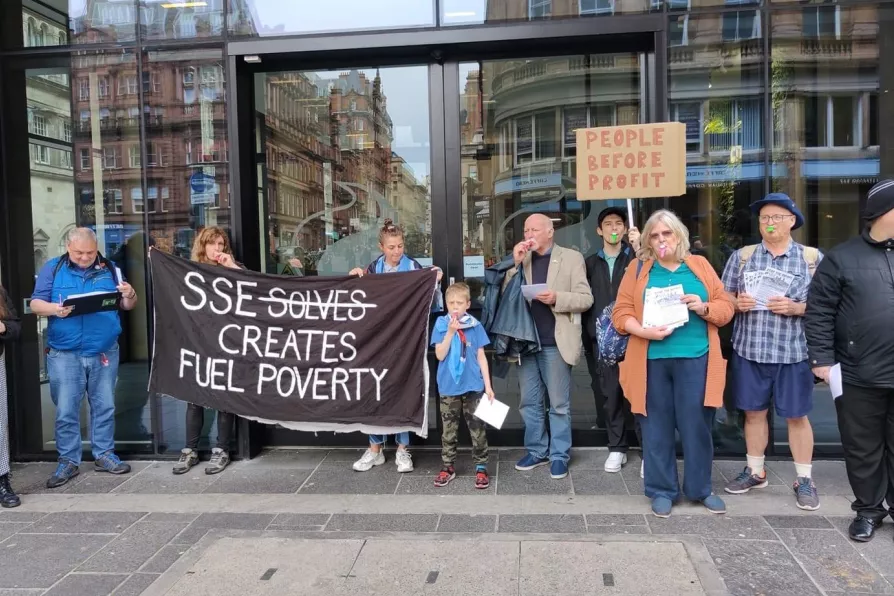LUKE FLETCHER outlines Plaid Cymru bold plans for wide-ranging policy consultations with trade unions in Wales

 For the last three months Wyndford Residents Union has been campaigning to get energy giant SSE round the table, staging multiple demonstrations — Stephanie Martin is fourth from left.
For the last three months Wyndford Residents Union has been campaigning to get energy giant SSE round the table, staging multiple demonstrations — Stephanie Martin is fourth from left.
THE cost-of-living crisis has the working class under assault on multiple fronts. Serving on the committee of the Wyndford Residents Union, I witness first hand the devastating impact that runaway inflation has upon the lowest earners in society.
But there lies great opportunity in times like these too, when the extraction of wealth from the bottom to the top of society has never been more flagrant. Members of my community in Maryhill, Glasgow, spend an average of 54 per cent of their income on energy bills, with our energy provider SSE (formerly Scottish and Southern Energy) reporting a 15 per cent year-on-year increase.
While most consumers have a degree of “flexibility” to their fuel tariffs by changing energy provider 1800 homes in Wyndford are tied to SSE due to its lease of our district heating system.

The wealth of the super-rich grows by £35 million daily while our NHS and schools collapse — that’s why thousands of us will be gathering in London demanding that the billionaires foot the bill for the many crises they have caused, writes TYRONE SCOTT

Climate justice and workers’ rights movements are uniting to make the rich pay for our transition to a green economy, writes assistant general secretary of PCS JOHN MOLONEY, ahead of a major demonstration on September 20












